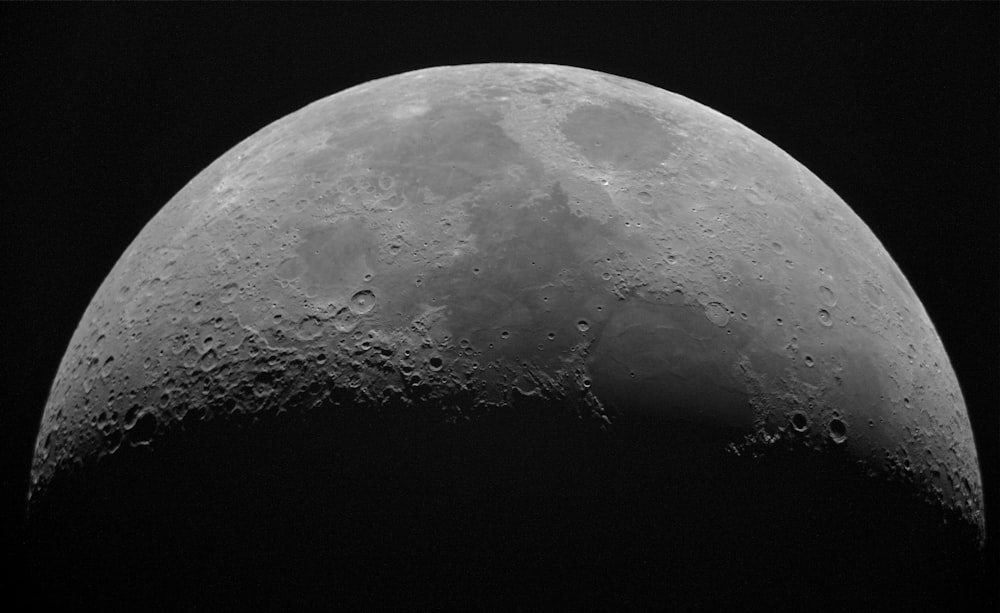Towards New Horizons: Assessing the Feasibility of Lunar Migration
20
Introduction
A. The Lunar Frontier
- Introduce the concept of lunar migration, highlighting its potential as the next frontier for human exploration.
- Example: Discuss the Artemis program by NASA and its goal of returning humans to the Moon.
- Provide historical context on lunar exploration, emphasizing milestones and their impact on lunar migration.
- Scientific Research: Reference studies on lunar geology to underscore the scientific value of the Moon.
II. The Technological Landscape
A. Current Technological Capabilities
- Offer an overview of current space exploration technologies, emphasizing recent breakthroughs.
- Expert Opinion: Quote experts in aerospace engineering on the advancements in propulsion systems.
- Discuss challenges such as radiation exposure during the journey, citing research on its effects and proposed mitigation strategies.
- Scientific Research: Include studies on space radiation and its impact on human health.
III. The Economic Viability
A. Cost Analysis
- Break down the costs associated with lunar migration, referencing reports from space agencies and private space companies.
- Example: Analyze the budget allocations for lunar missions in government space programs.
- Explore potential revenue streams, citing examples of successful ventures in space mining or scientific research.
- Relevant Examples: Mention private companies investing in space resource utilization.
IV. Human Adaptation to Lunar Environment
A. Physiological Challenges
- Discuss the effects of reduced gravity on the human body, citing studies on past space missions.
- Scientific Research: Include findings from long-duration spaceflights, such as those on the International Space Station.
- Evaluate strategies for overcoming health challenges, referencing proposals for artificial gravity or medical advancements.
- Expert Opinion: Quote medical experts specializing in space medicine.
B. Psychological Considerations
- Explore issues of isolation and confinement during extended space travel, citing psychological studies.
- Scientific Research: Include research on the psychological impacts of isolation in space environments.
- Discuss potential solutions for maintaining mental well-being, drawing from experiences on space stations.
- Expert Opinion: Quote psychologists specializing in space psychology.
V. Timeline for Lunar Migration
A. Short-Term Goals
- Discuss the establishment of a lunar outpost and cite timelines proposed by space agencies.
- Example: Reference projected timelines from NASA's lunar exploration plans.
- Explore initial crewed missions, referencing planned missions and their objectives.
- Relevant Examples: Discuss specific crewed lunar missions, outlining their goals.
B. Long-Term Vision
- Explore the vision of building sustainable habitats, referencing proposed lunar base designs.
- Scientific Research: Include studies on habitat designs suitable for the lunar environment.
- Discuss considerations for mass migration, citing expert opinions on the feasibility of large-scale lunar habitation.
- Expert Opinion: Quote experts in space architecture and settlement.
VI. Environmental Impact
A. Preservation of Lunar Environment
- Assess potential ecological impacts of lunar habitation, referencing studies on the Moon's unique environment.
- Scientific Research: Include research on the Moon's regolith and its ecological significance.
- Discuss sustainable practices, citing examples of environmentally conscious space missions.
- Relevant Examples: Highlight missions that implemented sustainable practices.
VII. Legal and Ethical Implications
A. International Cooperation
- Explore the role of international collaborations, citing agreements and treaties related to space exploration.
- Expert Opinion: Quote legal experts specializing in space law.
- Discuss legal frameworks for lunar colonization, referencing international space laws and conventions.
- Example: Mention the Outer Space Treaty and its relevance to lunar exploration.
B. Ethical Considerations
- Ensure the rights and well-being of lunar migrants, citing ethical principles and proposed guidelines.
- Expert Opinion: Quote ethicists specializing in space ethics.
- Balance exploration with preservation, discussing ethical considerations related to lunar resource utilization.
- Example: Discuss controversies and debates surrounding lunar mining projects.
VIII. Public Perception and Support
A. Public Interest
- Analyze public interest in lunar migration, referencing polls and surveys.
- Relevant Examples: Highlight instances of public enthusiasm for lunar exploration.
- Communicate benefits effectively to garner support, citing successful outreach campaigns.
- Example: Reference space agencies' communication strategies for engaging the public.
IX. Alternative Visions for Lunar Exploration
A. Private Sector Initiatives
- Discuss the role of private companies in lunar migration, referencing their contributions and ambitions.
- Relevant Examples: Highlight private companies actively involved in lunar exploration.
- Explore competition and collaboration in the space industry, citing instances of successful partnerships.
- Example: Discuss collaborations between government agencies and private companies.
Conclusion
A. A New Chapter in Human History
- Summarize key points, emphasizing the potential for lunar migration to shape the future of human civilization.
- Expert Opinion: Quote space futurists on the transformative potential of lunar colonization.
- Conclude with a forward-looking statement, expressing optimism for the possibilities that lunar migration holds.
- Scientific Research: Reference studies projecting the long-term impacts of human presence on the Moon.


































